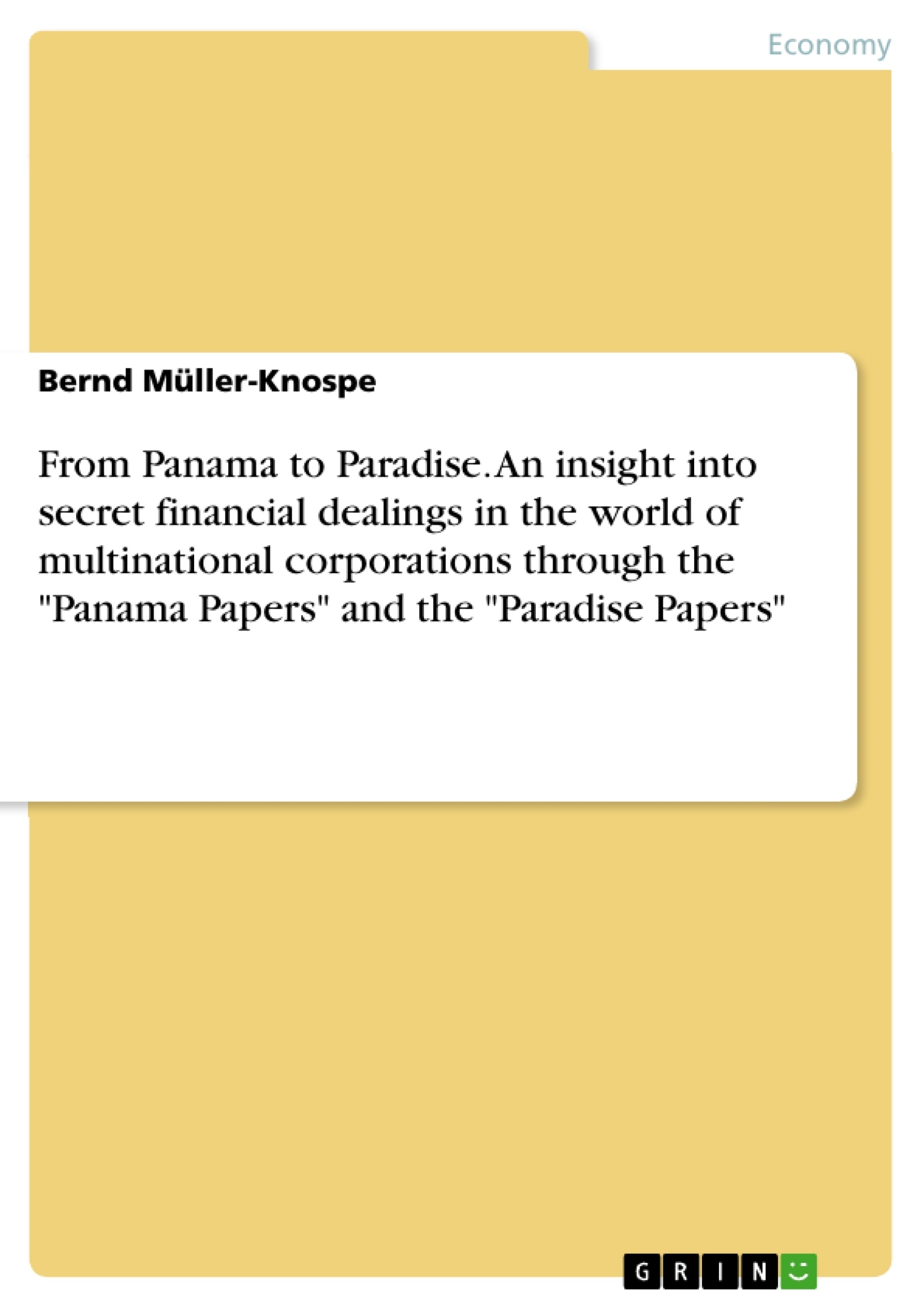Again and again, whistleblowers tell us about secret and often illegal dealings of big companies and rich and powerful individuals. This paper wants to give basic information about the use of offshore tax havens by multinational companies like Apple and Google as well as famous athletes, Russian oligarchs and pop stars.
What exactly is going on? How does it happen, what are the tricks used by the rich and famous, who helps them to hide their money and what are the consequences of these dealings for the ordinary, law-abiding citizen? Here you will find a few answers.
Inhaltsverzeichnis (Table of Contents)
- Whistleblowers or Traitors? - an Introduction.
- The Panama Papers
- The consequences:
- The Paradise Papers
- U.S. Universities Going Overseas
- Of Racing Cars and Airplanes........
- Apple Finds a New Shelter for its Profits.........
- Why Tax Havens Are a Moral, Political and Economic Danger
Zielsetzung und Themenschwerpunkte (Objectives and Key Themes)
This work aims to shed light on the use of tax havens by multinational corporations and wealthy individuals, exploring the complex web of financial dealings facilitated by offshore companies and trusts. It delves into the motivations behind these practices, examines their implications for global economies and social justice, and exposes the intricate mechanisms employed to conceal wealth and evade taxes.
- Tax evasion and avoidance strategies
- The role of offshore financial centers
- The impact of tax havens on global economies
- The ethical and legal implications of secrecy and anonymity
- The struggle between transparency and privacy in international finance
Zusammenfassung der Kapitel (Chapter Summaries)
- Whistleblowers or Traitors? - an Introduction. This chapter introduces the "Panama Papers" and "Paradise Papers" leaks, outlining their significance in exposing the practices of tax evasion and wealth concealment. It explores the ethical and legal complexities surrounding whistleblowers, examining their motivations and the consequences of their actions.
- The Panama Papers This chapter details the "Panama Papers" leak, explaining how the documents revealed the operation of Mossack Fonseca, a law firm specializing in setting up offshore companies. It provides insights into the motivations behind the use of shell companies, the role of tax havens, and the consequences of these practices for individuals, corporations, and governments.
- The consequences: This chapter explores the impact of the "Panama Papers" revelations, analyzing the reactions of governments, individuals, and corporations. It examines the measures taken by authorities worldwide to address tax evasion and strengthen financial regulations.
- The Paradise Papers This chapter introduces the "Paradise Papers" leak, highlighting its similarities and differences with the "Panama Papers." It explores the key players involved, including the law firm Appleby and Asiaciti Trust, and provides a glimpse into the scope and nature of the documents.
- U.S. Universities Going Overseas This chapter examines the involvement of American universities in offshore financial dealings. It analyzes the use of "blocker corporations" to shield endowments from taxes and the implications of these practices for educational institutions and their students.
Schlüsselwörter (Keywords)
Tax evasion, offshore financial centers, tax havens, Panama Papers, Paradise Papers, shell companies, wealth concealment, secrecy, anonymity, transparency, global economies, social justice, whistleblowers, Mossack Fonseca, Appleby, Asiaciti Trust, U.S. universities, endowments, blocker corporations.
- Quote paper
- Bernd Müller-Knospe (Author), 2017, From Panama to Paradise. An insight into secret financial dealings in the world of multinational corporations through the "Panama Papers" and the "Paradise Papers", Munich, GRIN Verlag, https://www.grin.com/document/384247




